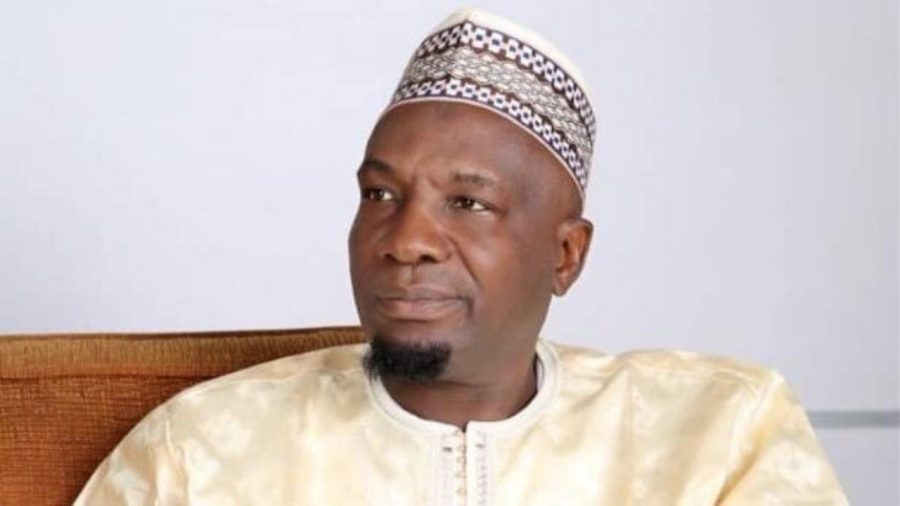Indications have emerged that Nigeria faces drastic food shortage and price hike in the nearest future if herders-farmers’ clashes in the North Central Nigeria continue unabated.
These are hinged on displacement or killings of farming households in the conflict zones.
The UN Commission for Refugees said in April that over 2,193,769 Internally Displaced Persons (IDPs) had been recorded in the region as a result of the insurgency.
The number keeps rising because the crisis has escalated.
Job loss and dependence of the IDPs across the states have ripple effects on household economies, food availability and disposable incomes of not only the IDPs but also every Nigerian.
In the North-east geo-political zone comprising Adamawa, Yobe and Bornu states, intensive farming and food production have been truncated because of terrorist activities of the Boko Haram sect.
The states were known for production of grains, beans and animal husbandry before the crisis started in 2009. The situation has deteriorated since then.
The North-Central, for several years, have also been enmeshed in clashes between cattle herders and farmers, with killings and displacement of hundreds of settlements and communities.
Benue State, renown for massive agricultural production, has been engulfed in the clashes with heavy causalities and mass burials for farming households, able men and women, as well as children.
Nasarawa State is not spared. Farming activities have been hindered in several local government areas flanking Benue State and in the hinterlands, making experts to raise the alarm of food insecurity
Views are that if the country fails in taming the crisis, and farming activities are continuously hindered, Nigeria’s food security drive is heading towards failure.
Food and Agricultural Organisation (FAO) of the United Nations defines food security as “when all people, at all times, have physical, social and economic access to sufficient, safe and nutritious food which meets their dietary needs and food preferences for an active and healthy life.”
FAO adds that “Household food security is the application of this concept to the family level, with individuals within households as the focus of concern.
Food insecurity, the UN organ said, exists when people do not have adequate physical, social or economic access to food as defined above.”
Early in March, a new report from FAO had listed Nigeria as one of the 37 countries in need of external food assistance.
It said food insecurity persisted in the world due to conflicts. Also listed, among others, were Ethiopia, Guinea, Haiti, Iraq, Kenya, Lesotho, Liberia, Libya, Madagascar, Malawi and Mali.
Executive Director, National Centre for Genetic Resources and Biotechnology (NACGRAB), Dr Sunday Aladele, said the danger is obvious because there is no farming activity in the north-east and some states in the North-central.
Implications of these are one, food will not be sufficient and seed security is lost because they have lost their seed banks.
Moreover, army warms are ravaging maize farms and this will negatively affect food availability, animal feeds, and industrial materials. Importation may intensify and foreign reserves will be depleted.
Professor Samuel Olakojo, a maize breeder at the Institute of Agricultural Research and Training (IAR&T) of the Obafemi Awolowo University, Ibadan, said the clashes had been affecting food production for almost a decade, but got intensified in the last three years.
“It affects food, feeds and confectionery production, and companies may lay off more staff, produce below capacity, and lose revenue to the trend,” he added.
Olakojo added that the food security threat was escalating.
For example, he stopped cultivation of 350 acres of land this year because he suffered devastation of about 15 acres last year.
“I have stopped maize and cassava cultivation because of this,” he said, saying that if 10 farmers of his capacity pulled out of farming in one city, one could imagine the quantity of food that would not be available.
Mr Adeniji Lucas, an agro-allied machinery fabricator and processor, said the crisis had been taking tolls on food production.
Tomatoes, beans, yam and other food items had become scarce, reducing disposable income of households in Nigeria.
Boko Haram crisis/north-central crises
Professor Olakojo said over 90 per cent of annual crop production in the North-East geo-political zone was already lost, and the North-Central is closely following the trend. These states are the food baskets of the country.
“If we do not suffer food crisis, then we must be importing food massively, and we will deplete the national foreign reserves. This will be self-contradictory,” he said
A political economist, Professor Femi Mimiko, Obafemi Awolowo University, Ile-Ife, said Benue State as a hub of food production had been the most wracked in recent times.
As Mimiko said, “displaced farming families have been forced to relocate; farmlands that were destroyed have not been replanted; and farming communities that were sacked have not been rebuilt.”
“My hunch is that general insecurity can only get deepened by reason of the impending possibility of collapse of agriculture,” he added.
He said adding the reality of food insecurity to the bouquet of security challenges, the situation of the country in the months ahead could only become more critical
Poor funding of agriculture
Poor access to financing has been contributing to inadequate farming activities in the last few years. Farmers have complained of inability to obtain loans due to stringent conditions attached to loan application in the specialized and commercial banks.
Some of the farmers said conditions such as certificates of occupancy, owners’ equity and existing cash-flows, among other requirements, make it practically impossible for the majority of small-scale farmers to obtain credit facilities from banks.
Managing Director of Oluji Cocoa Products Ltd, Mr. Akin Olusuyi, recently described Bank of Agriculture (BOA) as too far away from real farmers, contending that having branches in the state capitals implied lopsidedness and remoteness of the bank activities.
Climate Change
One of the other factors affecting farming activities, apart from clashes, is the climate change.
This has been evident in the forms of erratic rainfall patterns, and scorching sunshine. Poor rainfalls affect not only the crops’ growth but also yields.
Extremely hot whether affects poultry production, leading to bird mortalities and losses.
Aladele attributed climate change charcoal production, saying it had been depleting the forest, causing climate change which might also aggravate the Nigerian food production.
Adding his voice to the call for actions against impending food crisis, a Lagos-based farmer, Mr Babalola Orodeji, who has crop farms in the Oke-Ogun area of Oyo State, revealed to The Guardian that in the past few weeks, rainfall patterns in the agrarian area had been very unstable, causing crop stress and pest infestation.
Orodeji said farmers in the area could not plant maize in the first planting season around April to May, and that the dry season planting season starting around June was also being affected by the rainfall patterns.
He added that people of the area had been buying fresh maize from Ogbomoso area because of the inability to produce. This, he said, pointed to imminent food shortage.
Way forward
As part of the way forward, the NACGRAB boss advocated the use of mechanised farming in the crisis-free zones to enhance productivity per hectare of land. This, he opined, could mitigate the situation.
In addition to mechanised farming, he recommended the use of improved seeds, especially of maize, that can give times three of what farmers have been getting per hectare, emphasising intensification of research to adapt crops cultivated in the troubled zones to crisis-free areas.
Olakojo said the government must be sincere about its willpower to check the herdsmen and the attendant killings of farmers, expressing pessimism that ranching might not work because herders are naturally nomadic.
He frowned on the idea of the government to secure land for ranches to be used by the herders who are running private cattle businesses.
He said if the government would do that, it should be ready to provide land and feeds for poultry, fish and pig farmers too.
He suggested that the Abacha loots being recovered should be given to the Bank of Agriculture (BOA), and herders, who want to own ranches, should approach the bank for loans, buy land, cultivate pastures for their cattle, and repay the loans.
The police at the various checkpoints, he suggested, should be redeployed to the crisis-torn areas to protect farmland and farmers, and maintain law and order.
Former Executive Director, Institute for Agricultural Research, Samaru, and Vice Chancellor, Al-Qalam University, Katsina, Professor Shehu Garki Ado, a plant breeder, said that the crisis has lead to the death of humans, animals and the implications are that protein available is reduced and human capital available for farming is drastically affected.
Professor Mimiko said though it was not clear what the government was doing to mitigate the effects on food availability, incentivising the unaffected areas to produce more might mitigate the impending crisis.



2 Comments